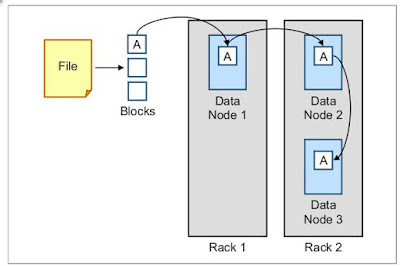Unleashing Big Data Power with Microsoft Azure: Key Features and Benefits
Introduction:
Ever wondered how companies manage vast amounts of data seamlessly? With the surge in data production, managing and analyzing Big Data has become crucial for businesses. Enter Microsoft Azure, a robust cloud computing service that offers a suite of tools specifically designed for Big Data. Whether you're a tech enthusiast or a business owner, understanding Azure's capabilities can revolutionize your approach to data management. This article delves into the key features of Microsoft Azure, highlighting its impact on Big Data. By the end, you'll have a clear grasp of Azure's offerings and how they can benefit your organization.
Body:
Section 1: Background and Context
Microsoft Azure is a cloud computing service created by Microsoft for building, testing, deploying, and managing applications and services through Microsoft-managed data centers. Since its inception, Azure has grown to become one of the leading cloud platforms, offering a wide array of services that cater to diverse business needs. In today's data-driven world, the ability to process and analyze large datasets efficiently is paramount. Azure's Big Data solutions provide businesses with the tools necessary to harness this power, enabling informed decision-making and strategic planning.
Section 2: Key Features of Microsoft Azure for Big Data
- Scalability: Azure's flexible infrastructure allows businesses to scale their data processing capabilities up or down based on demand, ensuring cost-effectiveness and efficiency.
- Advanced Analytics: With services like Azure Machine Learning and HDInsight, Azure offers advanced analytics capabilities that help businesses derive meaningful insights from their data.
- Integration: Azure seamlessly integrates with various data sources and tools, making it easier to consolidate and analyze data from multiple platforms.
- Security: Azure prioritizes data security, providing robust encryption, compliance certifications, and secure access controls to safeguard sensitive information.
- Cost Management: Azure offers various pricing models, including pay-as-you-go, which helps businesses manage their budget effectively while leveraging powerful data tools.
Section 3: Practical Tips, Steps, and Examples
- Choosing the Right Service: Evaluate your business needs and select the Azure services that align with your goals, such as Azure Data Factory for ETL processes or Azure Synapse Analytics for comprehensive data analysis.
- Implementing Machine Learning: Utilize Azure Machine Learning to build, train, and deploy models that can predict trends, optimize operations, and enhance customer experiences.
- Ensuring Data Security: Regularly review and update your security protocols using Azure's security tools to protect your data from breaches and unauthorized access.
- Cost Optimization: Monitor your Azure usage and explore cost-saving options like reserved instances or Azure's cost management tools to keep your expenses in check.
- Case Study: A retail company transformed its operations by using Azure's Big Data tools to analyze customer behavior, optimize inventory, and personalize marketing efforts, leading to a significant increase in sales and customer satisfaction.
Conclusion:
Microsoft Azure's comprehensive suite of Big Data tools offers businesses the ability to manage and analyze vast amounts of data efficiently. By leveraging Azure's scalability, advanced analytics, integration capabilities, security, and cost management, organizations can transform their data into actionable insights. As the demand for Big Data solutions continues to grow, Azure remains at the forefront, empowering businesses to unlock the full potential of their data. Whether you're looking to improve operational efficiency or make data-driven decisions, Azure provides the foundation for success in the digital age.




Comments
Post a Comment